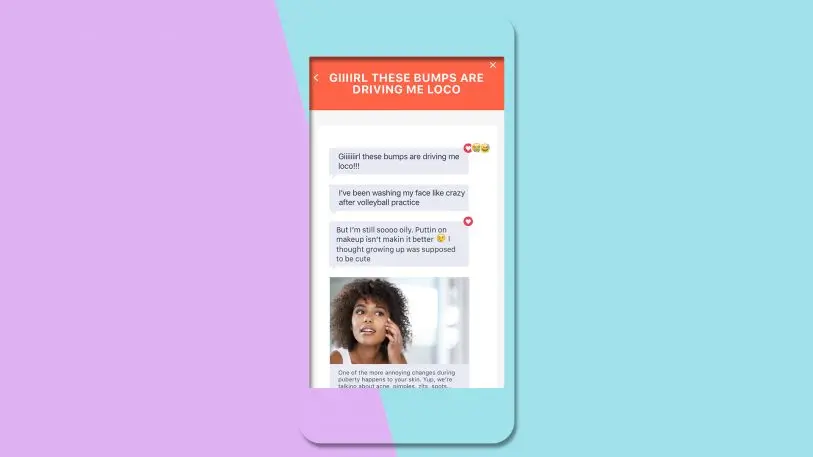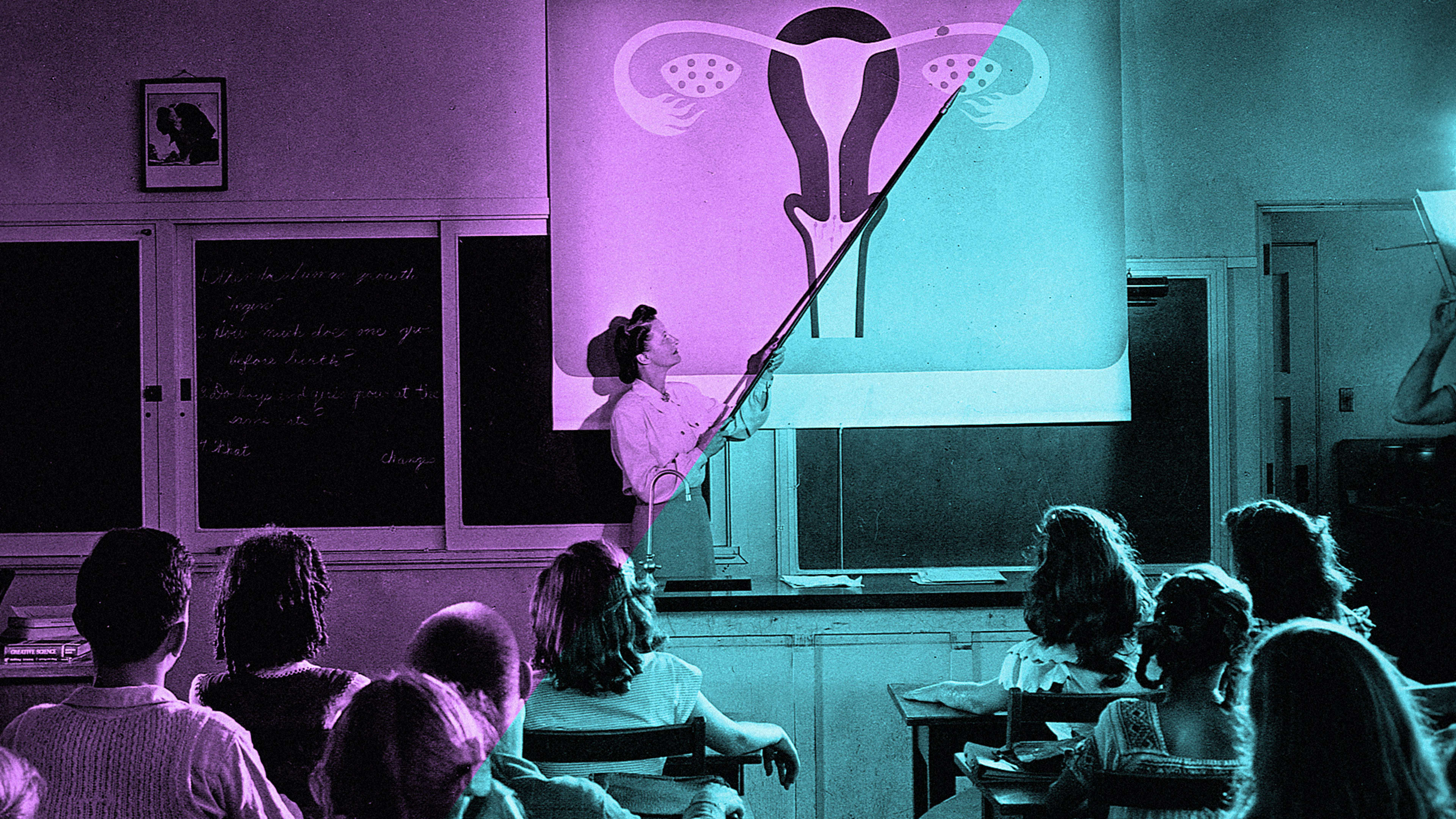Growing up in El Paso, Texas, Cristina Leos saw many of her peers become teen parents before graduating from high school. When she left for college at Stanford University, she realized that it wasn’t just her hometown that saw such high rates of teen pregnancy–there were communities facing similar challenges all over the country. “I got interested in understanding where the gaps were–why didn’t people have access to this critical information?” Leos tells Fast Company.
In 2015, Leos began a graduate program in health behavior at the University of North Carolina, Chapel Hill, to dig further into those questions. There, she met Elizabeth Chen, who had spent two years teaching science at a high school in rural eastern North Carolina through Teach for America. Chen and her TFA colleague Vichi Jagannathan made up the entire science department at their school, and they saw as many as 20% of their students become pregnant by the 10th grade. Chen and Jagannathan, as a result of their experience in the high school, began collaborating on ways to use technology to increase access to sex education; once Leos met them, they formed the organization MyHealthEd, Inc. and began working together.

That explains the format of the app: When teens open it, they can select a topic they’re wondering about–anything from acne to crushes to STIs–and a confessional story will unfold, text-message-style, explaining some common concerns around the issue; the app also tailors responses by gender identification, inclusive of transgender and gender non-binary teens. The Real Talk cofounders sourced these stories through their focus groups with teens, and many have contributed in response to an ad placed on Instagram in the leadup to the app’s launch.
Once the app is launched, Leos and her cofounders will aim to spread the word to their target demographic–middle schoolers and early high school–through a campaign largely driven by social media. Instagram, which proved effective in getting young teens engaged pre-launch, will, Leos predicts, be the main pull; stories from the app will populate Instagram fees, and once they click on them, kids will be directed to download the app. This strategy has been effective for other initiatives aimed at addressing under-discussed youth health issues–Sad Girls Club, an effort to get millennials talking about mental health, has bloomed to over 16,000 Instagram followers. “We hope that word-of-mouth and peer-to-peer will be our best way of reaching teens,” Leos says. The Real Talk founders are not ruling out partnerships with schools and health practitioners, but want to keep the app focused on spreading advice and starting conversations in a way that feels organic to their users.
“We really wanted to come at this issue from the perspective of human-centered design,” Leos says. And what they noticed was missing was an opportunity for open dialogue around issues of sex and growing up. In recent years across the U.S., the number of teens that report receiving information about birth control has declined; in rural areas, it’s dropped to just below 50%, the Guttmacher Institute found. Around 57% of males and 43% of females of middle and high school age say they had sex for the first time before learning anything about birth control. Fewer than 5% of LGBT students reported receiving any relevant or inclusive sex education.
While teen pregnancy rates have been steadily declining–in 2014, there were fewer than 25 births for every 1,000 female aged 15 to 19–STI rates are as high as one in four among the same age group. With a decidedly conservative political regime threatening to strip funding from critical resources like Planned Parenthood and national teen pregnancy research programs, while advocating for abstinence-only education that research has consistently proven ineffective, the Real Talk cofounders wanted to facilitate a way for teens to take more agency over their own education and to gain a safe space to explore their questions.
“Teens, in particular, young teens, often turn to other people who they know have been through something similar if they’re looking for advice,” Leos says. But in schools where frank talk about sex is taboo, there’s no real way for those conversations to become commonplace. Real Talk is designed to act as a stand-in for the wise, experienced friend teens often need when confronting issues related to sex for the first time. One story that pops up in Real Talk’s feed, for example, describes, from the perspective of a teenage girl, how she asked her boyfriend to take things slower and why, even though it was scary, she was glad she did; another is a teen ranting about acne and how it’s ruining her life. All of the stories include links to reputable web sources for more information that teens can access.
Getting the stories to be believable, Leos says, was a challenge in and of itself. The teens they met in their focus group did not hold back the eye rolls when Leos and her cofounders would say or write something that did not scan as “teenager’; they soon learned to incorporate more emojis and to adopt the wholesale use of popular teen words. “‘Cringey’ is the word of choice to describe all the things that we talk about on the app,” Leos says.
Real Talk has raised over $400,000 in funds in the form of grants from the U.S. Department of Health and Human Services’ Office of Adolescent Health and Yale University, where Jagannathan is getting her MBA. The app is also part of the San Francisco based Fast Forward accelerator’s 2017 cohort, which has provided additional funding and will be hosting a couple demo days in the Bay Area pre-launch. Future rollouts of the app, Leos says, will potentially involve a share feature, so groups of friends can share stories among each other, as well as a moderated comment feature in which teens will be able to respond to stories and ask further questions.
Recognize your brand’s excellence by applying to this year’s Brands That Matter Awards before the early-rate deadline, May 3.
